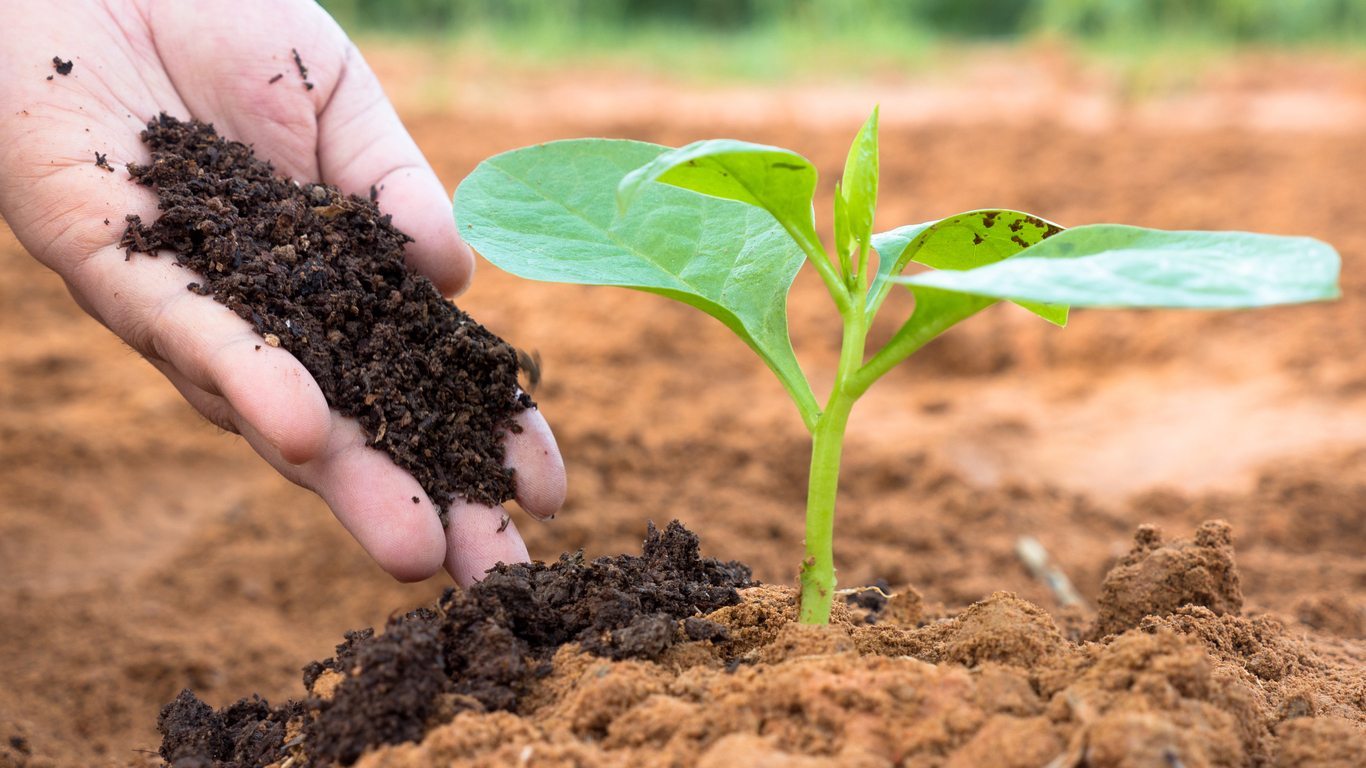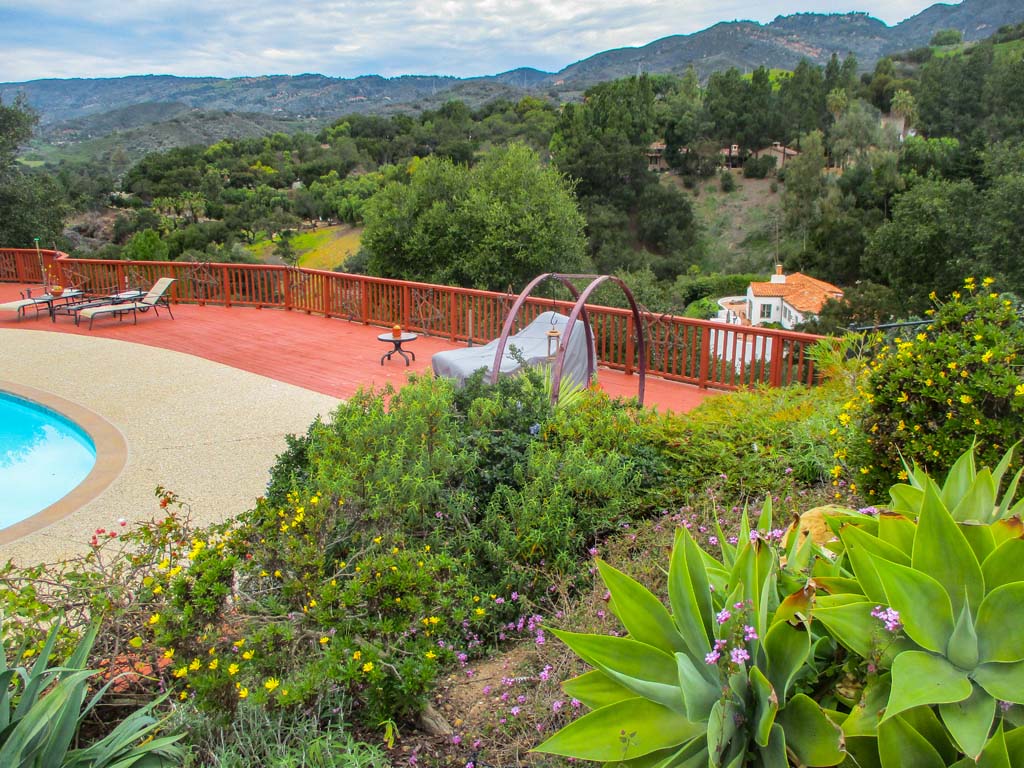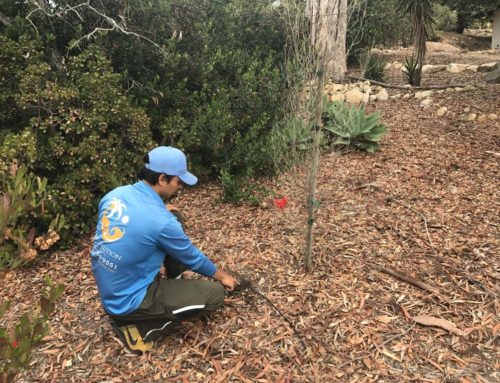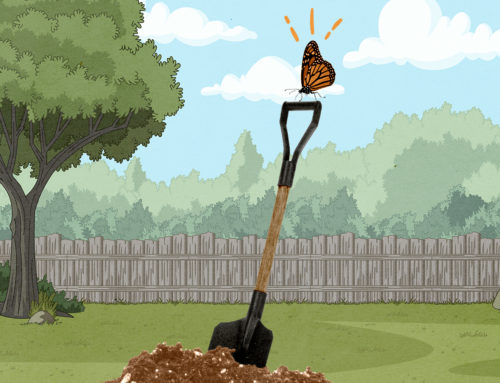Fighting Broadleaf Weeds in Santa Barbara

(But it’s still pretty great.)
So, what, then, is humus and why does my garden need it? Humus (HYOO-mus) is the organic material that is left over when organic matter—resulting from the breakdown of a plant or animal—has completely decomposed, leaving a thick, dark colored substance rich in nutrients. Organic matter by nature is high in carbon content, the very stuff that is the component of all life, plant or animal. And thus, adding carbon to our planting beds is life giving, feeding it the essential nutrient minerals that plants need to grow.
Amending soil with organic material has other known benefits, too. As it breaks down, it leaves voids that assist in the transport of air and water to plant roots. It also helps retain moisture and precious nutrients for plants to use.
Humus provides all of these benefits and more. Its granular texture loosens dense and compacted clay soils, but can likewise benefit sandy soils by holding in place the water and nutrients that might otherwise percolate quickly away from plants.
LANDSCAPE COMPANY NEAR ME
There are 2 reasons most clients contact us: to bring drive-up appeal to their home or to replace their current gardener. We take these two reasons to heart. We understand how important your landscape is to you. We are experts on drive-up appeal, water conservation landscaping, seasonal and climate planting, irrigation, and much more.
What humus isn’t
Humus is not compost and the terms should not be used interchangeably. While both seem to have similar attributes and benefits to the soil, understanding the difference can ensure proper use of both. Compost is the “dirt” that is created when decomposition has left our kitchen and yard waste into a usable, nutrient-rich soil. But compost isn’t finished decomposing, as humus is. Humus is what’s really, really, left after a very long period of decomposition—long after microbes, bacteria, and fungi have had their turn at the feast. This leaves behind the carbon-rich additive that soils might need for ideal density and workability to plant and maintain a thriving garden.
How to determine what you need
The best way to assess your needs is to consider your needs. Are you a dedicated composter with garden space to spare? Or are your plants just lacking vitality, with beds that are experiencing washout or looking compacted and dry? Research these questions and ask at your local garden center. And do not hesitate to ask a local landscape professional like SB Evolution Landscape for help. Landscape contractors are expert in garden maintenance and can be a valuable partner in establishing the best routine care for amending and fertilizing your garden beds.







Leave A Comment
You must be logged in to post a comment.